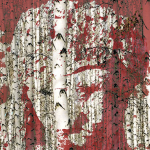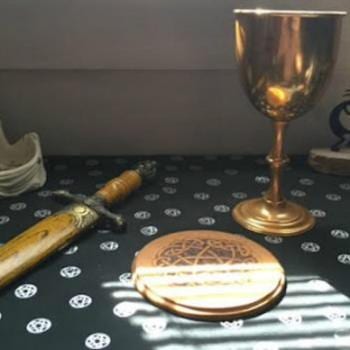The working side of Conjure was greatly influenced by the religious beliefs of the Congo region. They were one of its primary roots. The idea that spirits reside in the trees, the leaves, the roots, and the earth, and that they hold power to facilitate change became an important staple in the fabric of what we know as Conjure today.
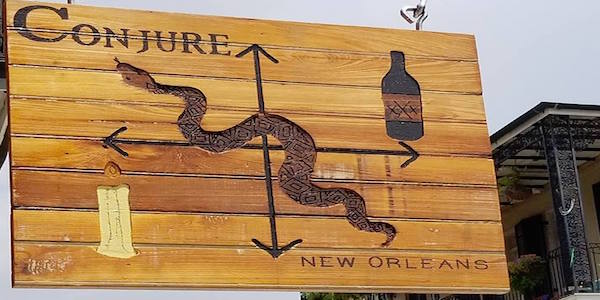
The meaning of change, as used here, is an appearance of one realm or world into the other. We do work to create a new reality. The reality that you need a job or healing, for example, is apparent in the physical but perhaps not yet seen in the spirit. The spirits of the roots work between both worlds so the reflection is seen on both sides. In this case, the healing you are looking for or the job you need is not only open to you, but also the fruit of the work you have done to acquire these things is made known in this world by the physical evidence. When the spirit and physical worlds are mirroring one another, you get the job and the sickness you had is no longer plaguing you. Simply put, it is the outward manifestation of the inner work as well as the inner manifestation of the outward work. The balance of both sides, both worlds, and both realities.
The altering of reality is effected by means of doing work with these spirits or essences that assist you in reaching the desired goal. It is using these natural and primal powers of the roots that were given to us by God that allows for our own edification, forward movement, and evolution to make our daily lives better.
The power of the root is one of primal beginnings. The spirits of the roots provide a touch of the divine, and these spirits work in conjunction with us to make things happen that will, ultimately, create change in one way or another. For example, let’s say that everywhere you turn the roads seem blocked, like nothing is, in the language of Conjure, “opened up for you.” It could be that the crossroads, the place of opportunity and open doors, is closed to you.
Why the crossroads? Well, the crossroads is a place of power, where the realm of the physical meets the realm of the spirit. It is the place where our paths are laid before us and, if it has been closed to us, we will absolutely see blockages all around. So, you would want to take some offerings to the crossroads and do a work to open it up.
You might take a coconut, place some of your hair, fingernail, or toenail clippings, together with a photo, some red palm oil, and some sugar inside, and take it to the crossroads. There you might give the crossroads offerings of whiskey or rum as well as smoke while you ask the spirits who reside there—and there are many—to open the way. All the while you are digging a hole in which to bury your work. Once that has been done, the crossroads, your paths, will open up for you again. This is just one of many works that can be done for a circumstance such as this, but the point I am making here is that these roots, dirts, leaves, and such hold power to create manifestations in both the spirit and the physical realms. This fundamental tenet is one we rootworkers hold to in order to effectively work Conjure.
Influences in Conjure
Conjure varies from region to region, as well as from family to family. Why is that? Well, to put it simply, some regions had more of one influence than another. Other regions had certain roots that were more easily accessible. You also have the influence of the families that lived in those regions whose own folk practices became incorporated into Conjure.
In the South, you will find folks who sweep their houses from back to front, not only to clean the floor, but also to begin a cleansing on their home. You will find others will put a railroad spike in the corner of their property to protect it. The reason for the spike is because it nails down or fortifies your home, preventing negativity or evil from being able to enter the property.
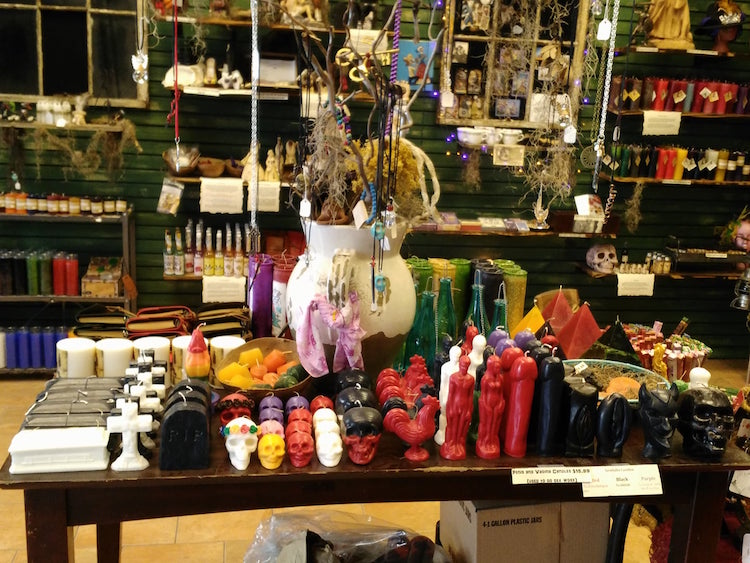
When I was a kid, we used to keep a glass of water, with evil eye beads inside, by the door. Once a week, a candle would be lit and set next to the glass, as it was believed that the evil eye could not survive under the water. If someone was trying to give you the evil eye, the glass by the door would take the hit. You see, these magical practices are very much intertwined in the stories that have been passed down by families and have become a big part of the Conjure works you see today.
Conjure is not a religion or spiritual path, per se, but rather magic/spiritual work that is done to bring about change in a situation. Whether that situation is a relationship, money, a job, revenge, healing, or cleansing, the fundamental tenet of Conjure is to do work that changes the circumstance.
Now, the work of Conjure can be, and is in some areas, largely used in conjunction with regional spiritual practices. In New Orleans, for example, the population of the city is largely Roman Catholic. The Catholic church makes up a large part of the city’s spiritual beliefs. Many rootworkers are in attendance at the weekly masses. Likewise, you will find that the working of Conjure in conjunction with the Catholic saints is very common in New Orleans. Take St. Expedite, also known as Saint Expeditus, for example. In life, Expedite was a Roman soldier who, it is said, converted to Christianity and was beheaded in 303 C.E. He had a reputation for getting things accomplished with haste. Because of this he is typically a saint that folks go to when they need fast results due to time constraints or other urgencies. He is greatly loved and worked with, both inside and outside of the Catholic faith. Catholic rootworkers will go to him, give offerings, and leave work so that things happen swiftly and the favors are answered quickly.
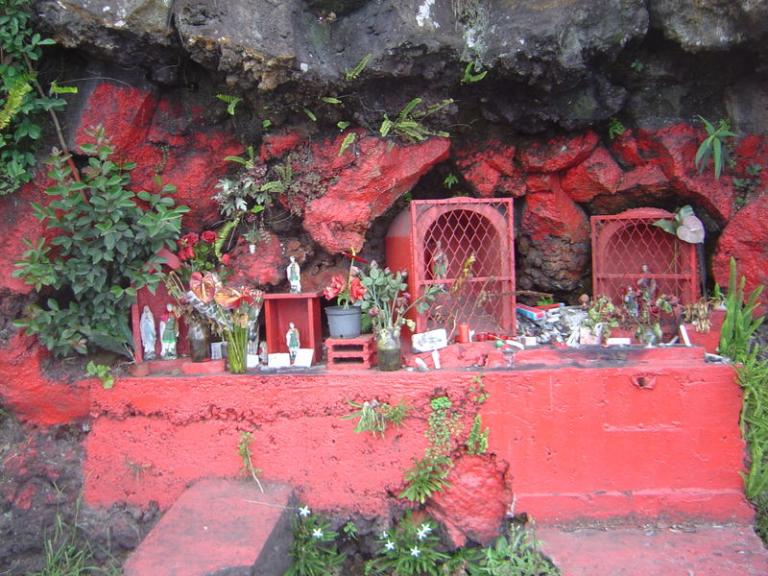
Usually, with St. Expedite, you make a deal with him. The deal is that you will give him offerings once he grants the petition you make. So, for example, if you are looking to get some money in a hurry to pay bills, you would make your prayers to him and tell him that if he grants the petition in a hurry, you will give him offerings, such as pound cake, water, candles (red, white, or yellow), and flowers. Now, it is very important that you honor that promise. When you tell a spirit, saint, or whomever that you are going to do something, you need to do it. Remember, if they grant something for you they can easily take it away. And they would be completely justified in doing so because you didn’t hold up your end of the bargain.
A few years ago, I was looking around in a Catholic church in New Orleans. I saw the beautiful statues, stained glass, and altar pieces and was in awe of how the place looked. I happened to come upon the area where prayer candles could be lit for people. It was a touching sight, for sure. There were all these candles lit for various prayers and petitions, all seated in a beautiful stand.
While I was admiring the stand and the lights that had been set, I noticed something underneath the candle stand, behind one of the iron legs. It was a mojo hand—a little charm bag— that had a St. Expedite prayer card wrapped around it. It had been placed under all of the lights that had been set in the church for whatever work the Conjure person was doing. I did not, of course, touch the work being done. That would just be rude. I did, however, greatly respect the work that was being done with the two paths together. It was Conjure and Catholicism working in conjunction with one another—faith and work coming together to achieve the desired goal. The power of the roots working in tandem with the power of the saint. It was a beautiful example of how the inner work of faith moves with the outer work of Conjure.
Reprinted with permission from Weiser Books, an imprint of Red Wheel/Weiser, LLC, Working Conjure by Hoodoo Sen Moise is available wherever books are sold or directly from the publisher at 800-423-7087 or [email protected].



